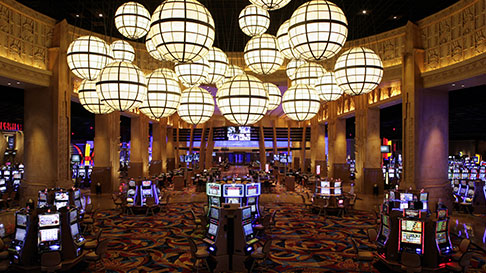
In the world of gambling, in which chance and strategy intersect, a unique tapestry of beliefs unfolds—one that weaves together luck, fate, and the enigmatic nature of casino games. Casinos, bustling with excitement and anticipation, are not just places for placing bets; they are also arenas in which superstitions thrive. Ranging from the novice player to the seasoned gambler, these mysterious practices often shape how individuals approach the games they play, believing that their actions can impact the outcome in ways that go beyond mere probability.
As players gather around roulette wheels, blackjack tables, and slot machines, the atmosphere is thick with stories of lucky charms, rituals, and codified behavior that defy logic yet provide a sense of comfort. Whether it’s wearing a specific outfit, following a particular sequence of bets, or even avoiding certain numbers, the attachment to various superstitions reflects a deep-rooted desire to control the uncontrollable. This article delves into the captivating world of casino game superstitions, exploring the beliefs that both entertain and mystify those who dare to play.
Cultural Beginnings of Superstitions
Gambling activities have long been interwoven with an array of superstitions that trace to early societies. The roots of these notions can be linked to humanity’s intrinsic need to influence the random outcomes related with chance and randomness. In ancient civilizations, games of chance were often tied to ritualistic practices. Gamblers would invoke favor or ask for favor from spirits, believing that their actions could affect the outcomes in their advantage. This basis laid the groundwork for the multitude of superstitions that spread as betting evolved over ages.
During the medieval period, gambling became a widespread hobby across the continent, and with it, a colorful tapestry of superstitions emerged. Players adopted numerous rituals and charms, believing they could change the outcome of games. The importance of numbers, in particular, began to show in superstitions related to card games and dice. The number seven was often considered favorable, while other numbers carried unfortunate connotations. These notions mirrored the social contexts of the time, evolving as they transferred through generations and transformed to new gaming environments.
As gaming establishments developed in the seventeenth century, particularly in the Italian peninsula and the French nation, the atmosphere surrounding betting became imbued in mystique. The growing openness of gambling activities allowed for the dissemination and growth of superstitions among players. Concepts like charmed charms, designated seating positions, and rituals gained prominence, creating a special culture within betting houses. As these traditions continued to thrive, they became integral to the character of gambling activities, illustrating how history and society shape the notions that influence how participants interact with chance.
Widespread Gambling Myths
Superstitions surrounding gambling activities are plentiful and varied, reflecting the dreams and fears of gamblers as they engage in chance-based activities. One of the most prevalent views is that specific numbers bring luck or bad luck. For example, the number 7 is often seen as a favorable number, frequently embraced by gamblers looking for a favorable result. Conversely, the number 13 is routinely considered unlucky, leading many gamblers to avoid it during their gambling periods.
Another common superstition relates to rituals that players believe can affect their odds. It could be blowing gently on the dice before a roll, using a specific hand to place a bet, or even putting on particular items of clothing, many people feel that these rituals can tilt luck in their favor. BET88 These rituals offer a feeling of control in an otherwise random environment, reinforcing the idea that fortune can be created through individual beliefs and customs.
Finally, the environment and vibe of the gambling house itself adds to superstition. Many players suggest that the presence of specific symbols, such as four-leaf clovers or lucky coins, can enhance their odds of winning. Additionally, players might adhere to the belief that victory streaks can be halted by mundane events, such as someone passing by or a spill at the gaming surface. The collective atmosphere in a casino can amplify these beliefs, creating a shared culture of superstitions that transcends single experiences.
Impact of Superstitions on Players
Superstitions play a crucial role in the mindset of casino players, often affecting their behavior and choices. A lot of gamblers think that luck can be influenced through different rituals, such as donning a talisman, selecting specific colors, or steering clear of particular digits. This reliance on superstitions can create a sense of control in an environment that is inherently unpredictable. Players frequently feel more self-assured and involved when they think that their actions could sway the outcome of a game in their advantage.
The influence of these superstitions extends beyond individual players, affecting the general atmosphere inside the casino. For instance, a player who believes in the luck of a certain slot machine might draw a gathering, as others are fascinated by their apparent success. This collective belief can heighten excitement and create a dynamic environment, leading to an engaging experience even for those who may not necessarily be superstitious. The buzz around certain games can lead to increased participation and longer playing sessions, supporting the casino’s lively social scene.
In some cases, superstitions can lead to harmful effects for players. Relying too much on rituals can result in poor gambling decisions, as some may ignore basic strategies in favor of baseless beliefs. Additionally, the stress to perform rituals may increase anxiety and tension, detracting from the pleasure of the experience. Ultimately, while superstitions can enhance the thrill of playing casino games, they can also lead to unwise choices that overshadow the fun and amusement intended in the casino experience.
